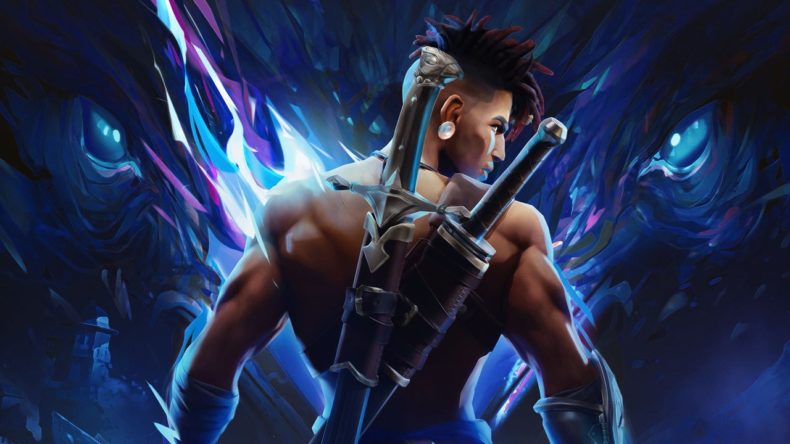January 15, 2024
The tail end of 2023 saw a handful of solid Metroidvania titles hit the market in the run up to Christmas, though to be fair fans of that particular genre have been eating well for some time. But despite some exceptional offerings, Metroidvanias have always been a domain lorded over by the humble indie developer. Yes, AAA developers may occasionally throw their hat in the ring, but it’s not common. With Prince of Persia: The Lost Crown, Ubisoft have not only thrown their hat in the ring, but their entire wardrobe and whatever car they’re currently driving, and then picked up the ring and run away with it.
In terms of pure gameplay mechanics, The Lost Crown is arguably one of the very best Metroidvanias I’ve ever played. Perhaps that’s to be expected, or even demanded, given Ubisoft’s available production capital and experience, but either way they’ve fully committed here and absolutely nailed it.
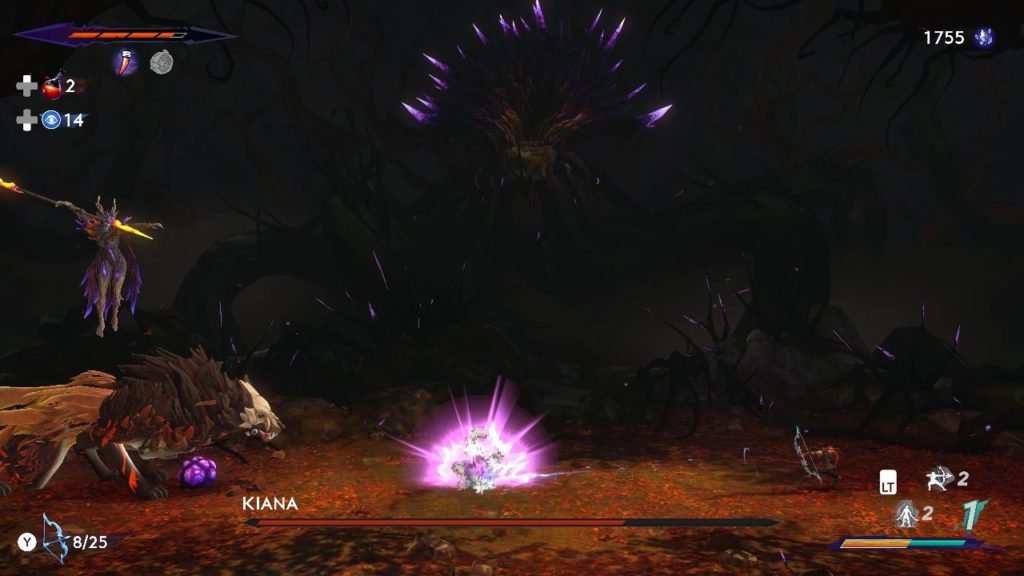
You don’t play as the actual Prince, however. Instead, you play as Sargon, youngest member of the Immortals, the elite Royal Guard of Persepolis. When events take an unexpected turn and Prince Ghassan is kidnapped, Sargon and the Immortals go after him, travelling to a mysterious location in the ancient desert where time anomalies have created a power called Simurgh. Despite his ridiculous haircut and boyband good looks, Sargon is pretty handy with his two scimitar, and also able to harness the power of Simurgh to perform impossible feats of acrobatics and time manipulation.
Prince of Persia: The Lost Crown is huge for a Metroidvania, weighing in at around 25 hours even if you don’t go for the 100% completion. Split across multiple biomes such as gaudy palaces, vast underground caverns, a subterranean harbour, an ancient forest, stormy coastline and a grimy prison, the non-linear nature of the exploration allows you to pick which areas you explore first – and by extension which bosses you fight and which new time and combat powers you unlock. It’s not entirely free form, but there’s enough malleability to necessitate backtracking and experimentation.
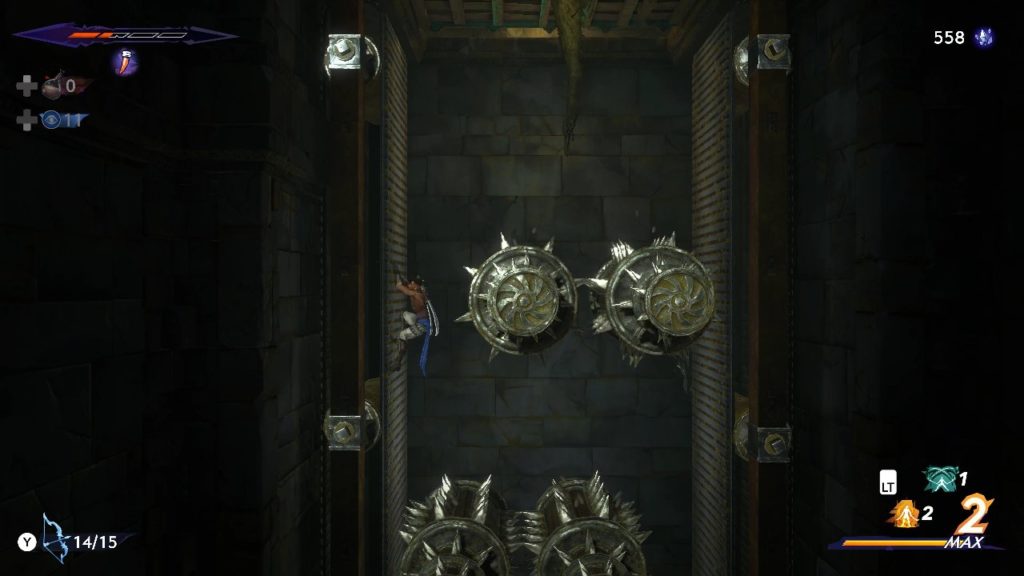
Which of course is aided by the regular drip feed of new powers and abilities. There are some great ones that I wouldn’t want to spoil but, as an example, there are powers such as an air dash, or the ability to make a copy of yourself that you can rewind to. When combined, the multiple powers allow you to navigate fiendish traps, gauntlets of enemies and hazards, or solve some truly taxing puzzles. And if you’re stuck on a puzzle or need a power you don’t have yet, you can mark the map with a screenshot to remind you later. This system uses a finite resource called Memory Shards, and feels like a genuine innovation we’ll see more of in the future.
The Lost Crown is absolutely fit to burst with secrets, puzzles, challenges and alternate routes. Linked by special fast-travel points, each area contains multiple side activities, and several multi-stage side quests give you even more to do. But none of it would be half as enjoyable if not for the sheer joy of simply moving in this game.
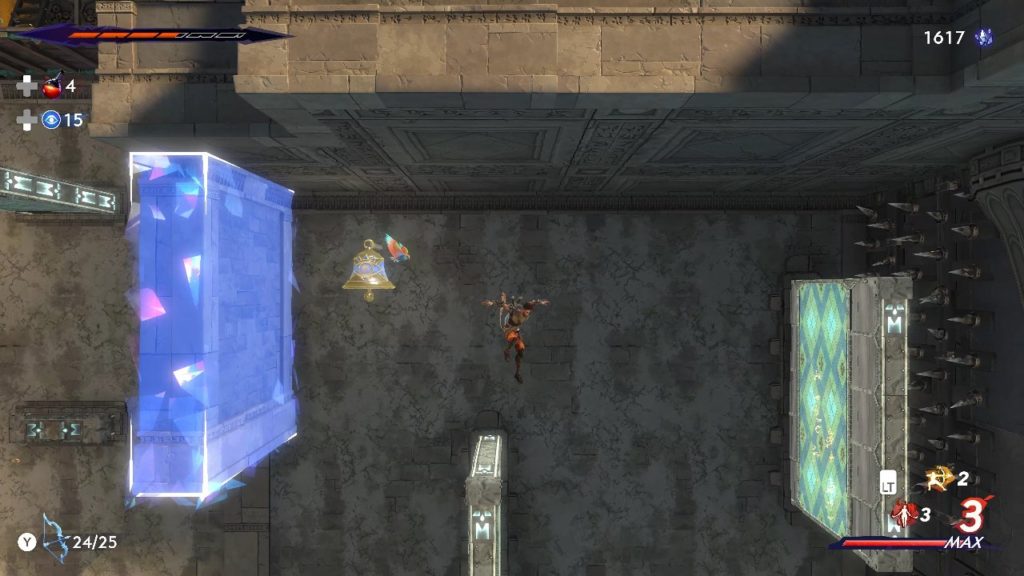
Sargon’s speed and agility combine to create a fluid, satisfying experience that’s rarely short of exhilarating. When you’re combining multiple powers and traversal moves to overcome a series of traps, or best some of the incredibly tough environmental puzzles, the sense of momentum is downright addictive. Combat, too, is slick and fast, as Sargon uses blades, bow, and chakram to defeat enemies.
Magical amulets can be slotted on Sargon’s necklace to give his attacks different effects, such as regaining his Arthra (mana) energy on a perfect parry, or even to add more attacks to his combos. Enemies respawn when you die or travel between rooms, so you’ll fight a lot. Arthra Surges can be unlocked by beating special boss fights, and then assigned to one of two slots to execute when you’ve accrued enough energy.
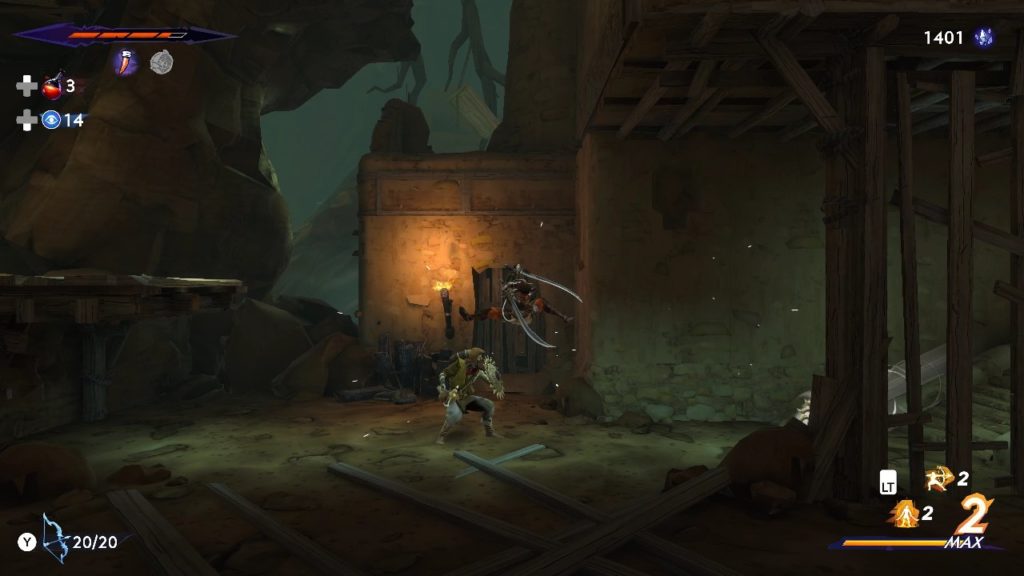
The Lost Crown’s greatest strength, though, is tying it all together to produce a game you simply can’t get bored of. There is so much to do, so many different powers and skills, such a vast array of collectibles such as lore items, skins, and amulets, or upgrade materials hidden behind dastardly traps, that you’ll rarely stay in one place for long. The pull of discovery and desire to overcome puzzles that have hitherto thwarted you is as powerful as I’ve ever seen in the genre.
Boss fights, too, are exceptional, pitting you against smaller minibosses like a giant crab or story bosses that offer a much stiffer challenge. These often feel almost like bullet hell shooters, with the onus on evading attacks and utilising your time powers to keep out of harm’s way. Often you’ll need that perfect parry, or you’ll need to have equipped a specific amulet to help mitigate a certain type of damage.
Surprisingly, the story that threads it all together is also pretty good. There are twists and betrayals throughout, so you won’t be sure for a good chunk of it who is on who’s side. It’s not an award winning script or anything, and some of the characters are a little forgettable, but it’s a more enjoyable and coherent narrative than you’d normally get in this genre.
With Prince of Persia: The Lost Crown, 2024 is off to a flying start. It’s a fantastic return to the franchise’s side-scrolling roots, and one of the strongest, smoothest examples of the genre I’ve played. It never seems to run out of ideas and, despite some pretty savage difficulty spikes in places (which you can mitigate with a superb set of difficulty options), it maintains a satisfying, fluid pace throughout.
Amazing time powers
Movement is a joy
Superb world to explore
Occasional difficulty spikes
A few minor bugs
Story is a little generic
Prince of Persia: The Lost Crown is a fantastic return to the franchise's roots, and one of the strongest examples of the genre I've played.


